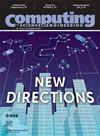Earth Virtualization Engines: A Technical Perspective
IF 1.9
4区 计算机科学
Q3 COMPUTER SCIENCE, INTERDISCIPLINARY APPLICATIONS
引用次数: 0
Abstract
Participants of the Berlin Summit on Earth Virtualization Engines (EVEs) discussed ideas and concepts to improve our ability to cope with climate change. EVEs aim to provide interactive and accessible climate simulations and data for a wide range of users. They combine high-resolution physics-based models with machine learning techniques to improve the fidelity, efficiency, and interpretability of climate projections. At its core, EVEs offer a federated data layer that enables simple and fast access to exabyte-sized climate data through simple interfaces. In this article, we summarize the technical challenges and opportunities for developing EVEs, and argue that they are essential for addressing the consequences of climate change.地球虚拟化引擎:技术视角
柏林地球虚拟化引擎峰会(eve)的与会者讨论了提高我们应对气候变化能力的想法和概念。EVEs旨在为广大用户提供交互式和可访问的气候模拟和数据。他们将高分辨率物理模型与机器学习技术相结合,以提高气候预测的保真度、效率和可解释性。在其核心,EVEs提供了一个联邦数据层,可以通过简单的接口简单快速地访问亿字节大小的气候数据。在本文中,我们总结了开发ev的技术挑战和机遇,并认为它们对于解决气候变化的后果至关重要。
本文章由计算机程序翻译,如有差异,请以英文原文为准。
求助全文
约1分钟内获得全文
求助全文
来源期刊

Computing in Science & Engineering
工程技术-计算机:跨学科应用
CiteScore
4.20
自引率
0.00%
发文量
77
审稿时长
6-12 weeks
期刊介绍:
Physics, medicine, astronomy -- these and other hard sciences share a common need for efficient algorithms, system software, and computer architecture to address large computational problems. And yet, useful advances in computational techniques that could benefit many researchers are rarely shared. To meet that need, Computing in Science & Engineering presents scientific and computational contributions in a clear and accessible format.
The computational and data-centric problems faced by scientists and engineers transcend disciplines. There is a need to share knowledge of algorithms, software, and architectures, and to transmit lessons-learned to a broad scientific audience. CiSE is a cross-disciplinary, international publication that meets this need by presenting contributions of high interest and educational value from a variety of fields, including—but not limited to—physics, biology, chemistry, and astronomy. CiSE emphasizes innovative applications in advanced computing, simulation, and analytics, among other cutting-edge techniques. CiSE publishes peer-reviewed research articles, and also runs departments spanning news and analyses, topical reviews, tutorials, case studies, and more.
 求助内容:
求助内容: 应助结果提醒方式:
应助结果提醒方式:


